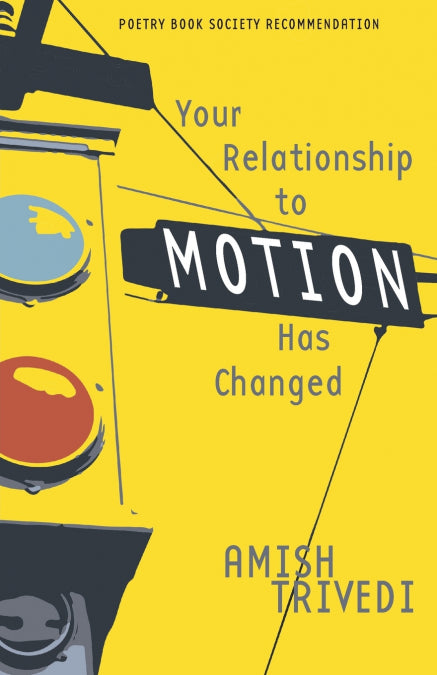
Autor: Amish Trivedi
Editorial: Shearsman Books
Páginas: 84
Idioma: eng
Publicado: 18/01/2019
Alto: 216.00 mm
Ancho: 140.00 mm
Lomo: 5.11 mm
Acabado: Tapa Blanda
Sinopsis:
Your Relationship to Motion Has Changed is an exploration through a wandering mind in the middle of external chaos. The poems trace private and public histories, from Lincoln mythos to serial killers, tied together through contorted bodies, whipped lungs, one eye firmly on the abyss, and one hand reaching back from it. “One more nightmare and I’m out,” but what are we waking into?
"The quick, bright shifts and twists that drive Amish Trivedi’s poetry are simultaneously form and content; they’re not just how we get there, they’re also where we’re going. In an ongoing reflection on direction, Trivedi positions the body in space, and then lets it go everywhere at once. “…in freedom they can only head out,” he says, immediately following it with the observation: “with no direction safe.” His frank assessment of daily life (“If there were a limit to things going wrong, / we’d have to learn new math.”) is tempered with a smart humor and a warm heart. A charged read—brainy and brilliant." —Cole Swensen
"Sometimes language in its artful grayness feels like so much taxidermy. But what you hold here is a hotly living thing. Sometimes a book brushes surfaces in the manner of the owl wing across wind's vagaries. But what you hold will reach into you in the way of the tattooer's inks ballooning lakes of owl under your skin. Talk about wisely despairing word made maybe redemptive flesh. It's to the body sharpest poet Amish Trivedi returns again. And again. I shook my way through this haunter, friend. Now it's your turn. To rattle. The ochre scent of wise fires nestling in. Your relationship to motion needled by each burning poem. Truer. Bluer. Get right, y'all, via this luminous one!" —Abraham Smith
"Combining Ashbery’s idiomatic flexibility with Breton’s rigorous flânerie, Trivedi’s poems enact an existential Brownian motion in which everything is connected to everything else, but never quite strongly enough. “There is no central / emotion that remains when / directionality stagnates,” Trivedi ruminates, and “Again, to be consistent // with emotion is to say variation / is inhuman.” These poems explore the minute crevices inside of that variation, where shreds of half-recalled American history, desire, and overheard coffee-shop conversations collide." —G.C. Waldrep
